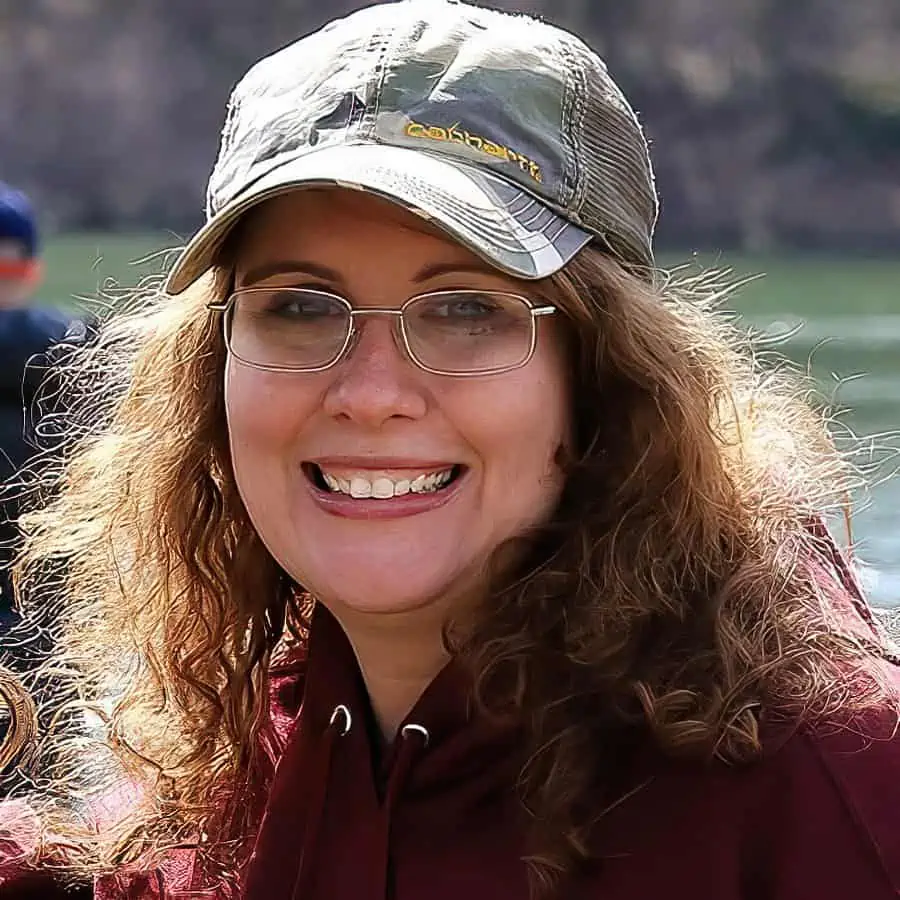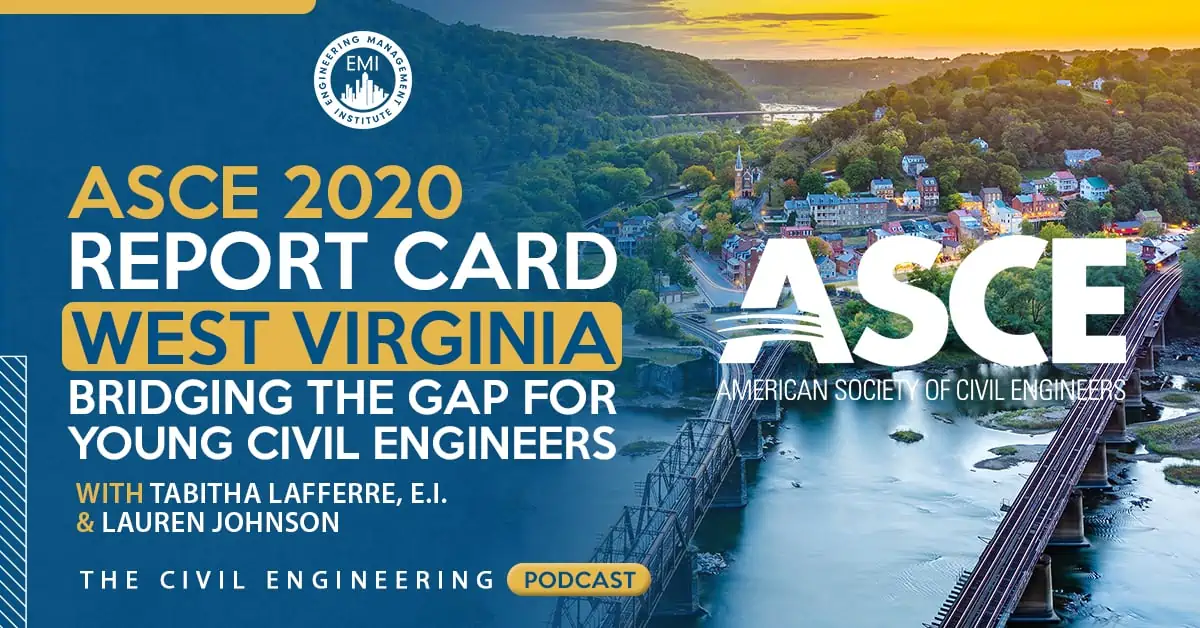Podcast: Play in new window | Download | Embed
In this episode of The Civil Engineering Podcast, I talk to Tabitha Lafferre, E.I., an Assistant Professor of Engineering Technology at Fairmont State University about how the ASCE 2020 Report Card for West Virginia’s Infrastructure was a way of connecting engineering students with experienced professionals. Joining Tabitha in the conversation is one of her students, and the president of the ASCE Student Chapter, Lauren Johnson, who also worked on the report card.
Engineering Quotes:
Here Are Some of the Questions I Ask Tabitha and Lauren:
- Why would you say infrastructure and infrastructure report cards (IRC) are so paramount to the economy of a nation?
- You were both accepted to participate in the 2021 ASCE Legislative Fly-In on March 4th. What was that experience like for you both?
- What went into drafting the IRC for the American Society of Civil Engineers? And can you tell us more about the overall IRC drafting process?
- What was it like working with the champions and chairs?
- What are the five categories West Virginia’s infrastructure was rated on, and on what criteria were these categories evaluated?
- What are the results obtained of the state’s grades, and what are the recommendations made to improve these grades?
- What was your overall impression of the course?
- What were some of the benefits of the partnership between the students and the ASCE, and what advice can you give people interested in doing something similar?
Here Are Some Key Points Discussed in This Episode About Growing a Civil Engineering Firm:
- Infrastructure is what makes the world go round. The quality of infrastructure affects everyone. We rely on our infrastructure to keep us safe from environmental disasters. It fuels the economy because it provides transportation solutions to get goods from the suppliers to the stores.
- Civil engineers are responsible for the design, construction, operation, and maintenance of our vital public works. It creates the responsibility to assess the state of our infrastructure.
- Report cards are essential. They report on the infrastructure’s condition and performance, and advise on the steps necessary to improve it.
- Participating in the 2021 ASCE Legislative Fly-In is a fantastic experience. It allows you to meet with state representatives and senators, enlighten them on the current state of the infrastructure, and promote infrastructure investment. It is a fantastic experience for students and young engineers to work with professional engineers and other students, and will also have an impact on your professional career.
- West Virginia took an innovative approach to draft its report card. It is one of the first states to utilize student members, who were assigned different categories to work on. The students had team leaders to ensure they met their drafting deadlines. The team leaders worked with champion engineers specializing in that specific category, and who assisted the student teams with the drafting and took them on field trips. As the students’ finished their drafts, the champion professionals revised the drafts. They submitted them to the ASCE for final editing to ensure consistency with national report cards.
- It is fascinating and educational for students to work with professionals in this way. It is eye-opening, and you learn things that you will never acquire in any classes.
- The five categories on the report card were dams, wastewater, drinking water, roads, and bridges. The categories were conditioning capacity, operations and maintenance, funding, future need, public safety, resilience, and innovation. The grade given for this report card was a D. The category results are as follows:
- Dams: D
- Wastewater: D
- Drinking water: D
- Roads: D+
- Bridges: D+
- It is neat to learn all the different parts that go into grading things on the report card. You see how the infrastructure directly impacts the health and safety of the public in that area.
- The entire process was a great learning experience for the students and the professionals who were involved. The champion professionals also said that they learned a lot from the students. It taught the students to work collaboratively with professionals with different skill sets and experience levels. This type of project yields better engineers entering the workforce and will benefit everyone in the long run.
More Details in This Episode…
About Tabitha Lafferre, E.I.

About Lauren Johnson

Sources/References:
West Virginia Infrastructure Report Card
Fairmont State University
Roads to Prosperity Program
Connect with Tabitha Lafferre, E.I. on LinkedIn
Civil Engineering Collective
This Episode is Brought to You by ACI

Starting on January 1 this year, ACI launched new member benefits. ACI members now have free access — through annual subscriptions — to all ACI University live webinars, free access to 260+ on-demand courses, and unlimited access to the Institute’s practices (including all ACI guides and reports) and symposium volumes.
ACI members push the concrete industry further by adapting to new technology and investing in their careers, are dedicated to improving concrete design, materials, and construction. You do not have to be an ACI member to work in the concrete industry. If you want to exceed expectations in it, there is no better place to be. Whether you are a student just starting or have years under your belt, ACI membership ensures that no matter what changes the world brings, you will be prepared to thrive, and your life’s work will last for generations. Right now, ACI is offering a $30 discount on new Individual and Young Professional Memberships — student memberships are free! Join ACI today at concrete.org/PODCAST30.
To your success,
Anthony Fasano, PE, LEED AP
Engineering Management Institute
Author of Engineer Your Own Success







